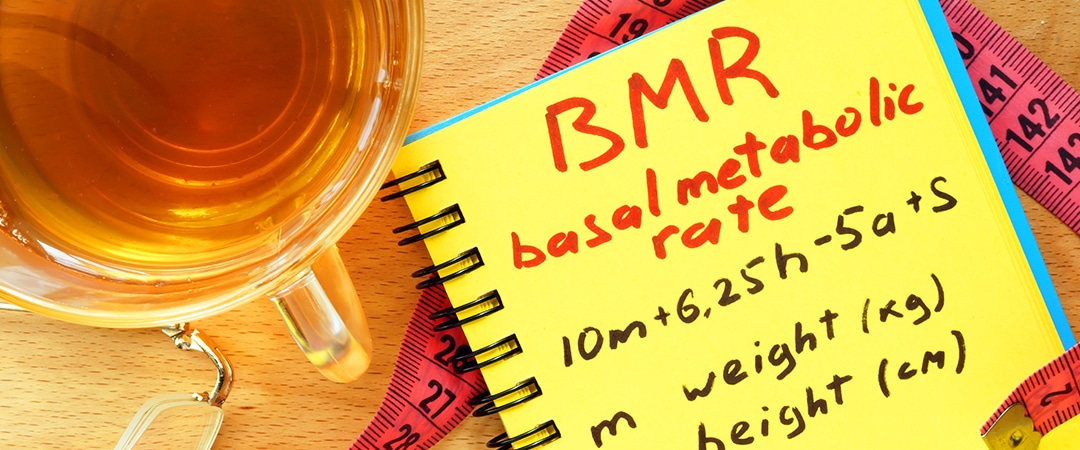BMR
Tomáš Soušek
What is BMR (Basal metabolic rate)?
It’s the minimum number of calories to live. So the number of calories your organs need to function while you perform no activity whatsoever — like if you stayed in bed all day.
With BMR you can also calculate your daily calorie intake.
How to calculate BMR?
You need to enter you height, weight, age and gender into the BMR formula:
- For men: BMR = 10 x weight (kg) + 6.25 x height (cm) – 5 x age (years) + 5
- For women: BMR = 10 x weight (kg) + 6.25 x height (cm) – 5 x age (years) – 161
You can also quickly calculate your BMR just by entering your information here:
How to calculate daily calorie requirement?
Once you’ve calculated your BMR, you can calculate your daily calorie requirement by multiplying your BMR by your activity level:
| Activity level | Multiplier |
|---|---|
| Sedentary (little or no exercise) | x 1.2 |
| Lighty active (light exercise or sports 1-3 days/week) | x 1.375 |
| Moderately active (moderate exercise 3-5 days/week) | x 1.55 |
| Very active (hard exercise 6-7 days/week) | x 1.725 |
| Super active (very hard exercise and a physical job) | x 1.9 |
What is a good BMR?
This will vary from person to person. Since your BMR is based largely on involuntary functions like breathing and pumping blood, changes in your day-to-day activity don’t do much to raise or lower this number. However, increasing muscle mass does increase BMR. This means that when you have a lot of muscle mass, you’ll burn more calories at rest.
What is an average BMR?
The average BMR is about 1409 kcal for a woman and about 1696 kcal for a man.
Factors affecting BMR
Each cell and organ in your body requires energy to survive. So the more your body weighs (and the more cells it has), the more kilocalories it needs. With increasing weight, your BMR will rise as well.
However, BMR doesn’t depend entirely on weight. There are also other factors affecting BMR:
- Age - BMR increases with each year as you grow.
- Gender - Men have higher BMR than women. Because their fat-free mass is, on average, higher.
- Genetics - Every person is slightly different regarding their BMR.
- Exercise - The amount you exercise affects your BMR, especially body-building exercises. When you develop your muscles, you increase the weight of your fat-free mass.
- Body temperature - BMR increases as the temperature of your body rises.
- The temperature of the environment - In colder temperatures your body needs to create more heat to preserve its proper temperature. This leads to an increase in BMR.
- Hormones - When they are in high concentration in blood, your BMR increases and vice versa.


